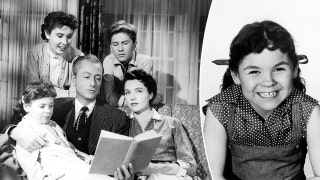Oscar-winning actor Philip Seymour Hoffman was found dead Sunday of an apparent drug overdose at his Manhattan apartment.
Police responded to the 46-year-old's apartment in the West Village shortly after 11 a.m., police sources told FoxNews.com.
A friend found his body in the apartment and phoned police. Hoffman was alone in his bathroom when he was discovered with a heroin-filled needle in his arm, law enforcement sources said.
One police source told FoxNews.com that authorities are investigating whether Hoffman received a more potent type of heroin that's being blamed for numerous deaths over the past two weeks, first in the Pittsburgh area and later along the east coast. The substance combines heroin and fentanyl, an opiate used to soothe the pain of cancer patients, and is being blamed for dozens of deaths across the country, the Pittsburgh Post-Gazette reports.
Police are "looking at if (Hoffman) had the bad batch going around," the source told FoxNews.com.
A neighbor who saw Hoffman Saturday morning at a neighborhood grocery store said the actor "looked gray, not good."
Hoffman spoke candidly over the years about past struggles with drug addiction. After 23 years sober, he admitted in interviews last year to falling off the wagon and developing a heroin problem that led to a stint at a rehabilitation facility.
In a statement, Hoffman's family asked for people to keep the actor "in your thoughts and prayers."
"We are devastated by the loss of our beloved Phil and appreciate the outpouring of love and support we have received from everyone," his family said in a statement. "This is a tragic and sudden loss and we ask that you respect our privacy during this time of grieving."
By Sunday night, nearly 100 reporters and photographers had congregated outside Hoffman's apartment, and a well-wisher had left flowers in the actor's memory. New York police officers debated whether to block the body from waiting photographers as it was wheeled out of the building.
Hoffman — no matinee-idol figure with his tubby, lumpy build and limp blond hair — made his career mostly as a character actor, and was one of the most prolific in the business.
The stage-trained actor's rumpled naturalism made him one of the most admired performers of his generation. Hoffman won the Best Actor Oscar in 2006 for his portrayal of journalist and "In Cold Blood" author Truman Capote in the 2005 film "Capote."
In one of his earliest roles, he played a spoiled prep school student in "Scent of a Woman" in 1992. One of his breakthrough roles came as a gay member of a porno film crew in "Boogie Nights," one of several movies directed by Paul Thomas Anderson that he would eventually appear in.
He often played comic, slightly off-kilter characters in movies like "Along Came Polly," "The Big Lebowski" and "Almost Famous."
More recently, he was Plutarch Heavensbee in "The Hunger Games: Catching Fire" and was reprising that role in the two-part sequel, "The Hunger Games: Mockingjay," which is in the works and was to feature a largely expanded role for his character, Plutarch Heavensbee. And in "Moneyball," he played Art Howe, the grumpy manager of the Oakland Athletics who resisted new thinking about baseball talent.
Just weeks ago, Showtime announced Hoffman would star in "Happyish," a new comedy series about a middle-aged man's pursuit of happiness.
In "The Master," he was nominated for the 2013 Academy Award for best supporting actor for his role as the charismatic leader of a religious movement. The film, partly inspired by the life of Scientology founder L. Ron Hubbard, reunited the actor with Anderson.
He also received a 2009 supporting nomination for "Doubt," as a priest who comes under suspicion because of his relationship with a boy, and a best supporting actor nomination for "Charlie Wilson's War," as a CIA officer.
Born in 1967 in Fairport, N.Y., Hoffman was interested in acting from an early age, mesmerized at 12 by a local production of Arthur Miller's "All My Sons." He studied theater as a teenager with the New York State Summer School of the Arts and the Circle in the Square Theatre. He then majored in drama at New York University.
In his Oscar acceptance speech for "Capote," he thanked his mother for raising him and and his three siblings alone, and for taking him to his first play. Hoffman's parents divorced when he was 9.
With a versatility and discipline more common among British performers than Americans, he could seemingly take on any role, large or small, loathsome or sympathetic.
On Broadway, he took on ambitious roles like Willy Loman in "Death of a Salesman," Jamie in "Long Day's Journey Into Night" and both leads in "True West." All three performances were Tony nominated.
His 2012 performance in "Death of a Salesman" was praised as "heartbreaking" by AP theater critic Mark Kennedy.
"Hoffman is only 44, but he nevertheless sags in his brokenness like a man closer to retirement age, lugging about his sample cases filled with his self-denial and disillusionment," Kennedy wrote. "His fraying connection to reality is pronounced in this production, with Hoffman quick to anger and a hard edge emerging from his babbling."
Two films starring Hoffman premiered last month at the Sundance Film Festival: the espionage thriller "A Most Wanted Man," directed by Anton Corbijn, and "God's Pocket," the directorial debut of John Slattery.
Hoffman is survived by his partner of 15 years, Mimi O'Donnell, and their three children.
The Associated Press contributed to this report.













































